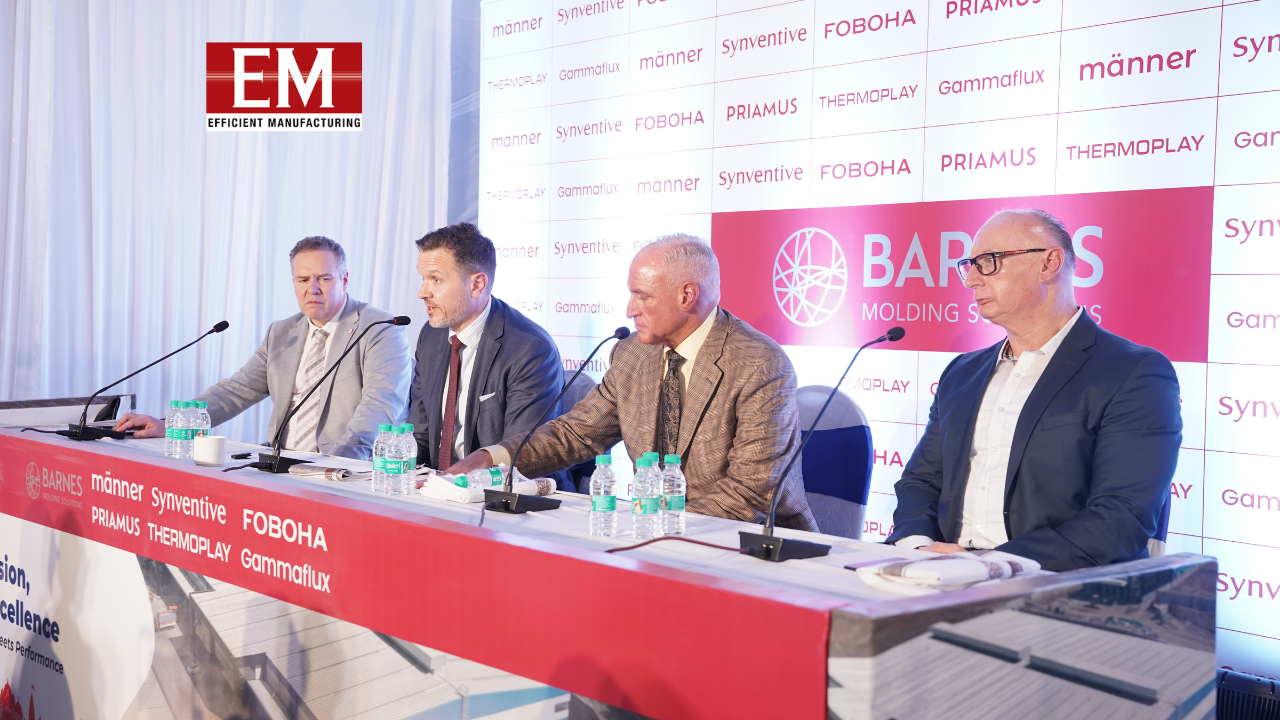| Attributed to: Rohit Ramanand, VP of Engineering India, New Relic
1. In your opinion, do you think data-driven customer experience is considered a competitive edge in the automotive industry? And why is it important?
Data driven customer experience is a competitive differentiator in the automotive sector. When companies in this space face IT outages, due to delays in spare parts distribution, failures in remote diagnostic systems, or service appointment booking errors, it has a damaging impact. Customers expect an exceptional service that’s reliable, connected and cost-effective. They want maintenance checks scheduled via a mobile app and timely over-the-air updates to be sent directly to them. The brand loyalty of these companies depends on the implementation of data-driven and intelligent observability that is able to minimise the number and scale of problems. Issues must be identified and resolved before they ever impact customer touchpoints; safeguarding both brand reputation and customer trust.
2. Could you share examples of how leading automotive companies are leveraging data to enhance customer satisfaction?
Not long ago, automotive brands competed on superior performance and vehicle reliability but today, these expectations are table stakes. The real competitive differentiator for modern automotive companies is customer experience. Leading brands can now leverage data to enhance customer experience and satisfaction. Driving data is used to predict when vehicles need maintenance, and customised service reminders can be sent out based on individual usage patterns. Potential issues are identified before they occur by analysing vehicle sensor data, and therefore preventing breakdowns. Connected car technologies leverage data to provide drivers with real-time route guidance, based on traffic conditions. Data from in-vehicle sensors, mobile apps, and financial companies can be used to personalise products and services, while improving and developing vehicles based on customer demand and upselling.
3. What are the primary data sources in the automotive industry for creating personalized customer experiences?
Automotive companies have extensive data related to customers in their Customer Relationship Management – or CRM – systems, such as contact details, purchase and service history, preferences and brand interactions. This volume of data allows companies to tailor communication to individual needs and scenarios. Additionally, most modern vehicles are equipped with systems that can collect real time telemetry data on vehicle behaviour, performance and usage. This helps with creating personalized maintenance reminders, insurance premiums and several driver assisted features. Automotive companies today have a strong presence online, and engagement data from company websites, social media platforms and other online forums such as chat boards and feedback portals can provide insights into customer interests, needs and sentiment, which can lead to more targeted marketing campaigns and tailored loyalty programs. Most automotive companies have mobile apps that customers can use for booking a service appointment to opening and closing a door. These apps can also capture location information that can be used to personalize the customer experience. Companies can also review data aggregated from third party sources like consumer behaviour studies, market research and demographic data, to refine customer segments and increase pesonalized marketing efforts. Many automotive companies offer internet of things (IoT) and smart home integration capabilities, especially around electric vehicles that offer additional layers of personalization when it comes to synchronizing vehicle features with home automation systems.
4. How does the integration of data from connected vehicles, mobile apps, and dealerships contribute to a unified customer profile?
Through the aggregation and integration of data from a variety of different touchpoints, automotive companies can gain a comprehensive view of a customer’s relationship with their brand. This allows the company to create highly personalized marketing strategies, recommend maintenance services or even cross sell and up sell products to customers. Data from several sources leads to a unified customer profile, and a well-rounded view based on different touchpoints the customer has with the business. It creates a seamless experience for the customer across the physical dealership and digital channels, while helping the business identify the customer irrespective of how they choose to interact. Access to comprehensive customer data enables more effective support and service interventions, helping service teams quickly reference past issues and address recurring problems faster. By understanding and anticipating customer needs through a unified profile, companies can build stronger relationships, improve customer satisfaction as well as increase brand loyalty and retention. Through the strategic integration of data from connected vehicles, mobile apps, and dealerships, companies can enhance the depth and accuracy of customer profiles, allowing them to deliver experiences that resonate personally with each customer.
5. What role does real-time data play in responding to customer needs more effectively?
Real-time data is essential to understanding customer needs and behaviours. It’s the holy grail for automotive brands wanting to provide personalized responses, proactive support, and timely solutions, which greatly improves the customer experience. For example, identifying preferred navigation methods or understanding entertainment choices means that data from connected systems offers manufacturers the insights needed to create personalized driving experiences that resonate with individual users. If analytics reveal that most drivers use voice commands, manufacturers can invest in improving voice recognition technology. Real-time data allows automotive companies to refine user interfaces, build intuitive infotainment systems, and integrate new technologies like augmented reality displays. Solving customer pain points using real-time data greatly improves satisfaction, and builds customer loyalty.
6. How are AI and machine learning technologies shaping the future of data-driven customer experiences in the automotive sector?
AI and machine learning enable more sophisticated, data-driven customer experiences. AI algorithms can analyze data from customer interactions, driving patterns, and preferences to recommend personalized products and services. For example, based on driving habits, AI can suggest vehicle models with features that align to a customer’s lifestyle or recommend optimal maintenance schedules. Machine learning models can also help customers better predict the best timing and channels for outreach. This results in highly personalized marketing efforts that are more likely to resonate with individual customers, increasing engagement rates and driving sales. AI-powered virtual assistants provide real-time insights and support, making driving safer and more enjoyable. Such assistants can adjust car settings, provide navigation assistance, or even offer infotainment options based on preferences learned over time.
Machine learning also enables real-time decision-making in autonomous and semi-autonomous vehicles. These systems can process vast amounts of data from sensors and cameras to assist with lane-keeping, adaptive cruise control, traffic sign recognition, and emergency braking. AI and ML can predict vehicle maintenance needs by analyzing data from connected car systems, reducing the risk of breakdowns and extending vehicle life. This capability not only improves the customer experience by preventing unexpected service disruptions, but also lowers maintenance costs for both customers and manufacturers.
Many automotive companies are using AI-driven chatbots to handle customer queries, schedule service appointments, and provide information on vehicle features or financing options. This enhances responsiveness and availability, while freeing up human resources for more complex customer service tasks. Machine learning analyzes customer feedback from social media, surveys, and reviews to detect sentiment trends and react promptly; enabling companies to address issues quickly, improve customer satisfaction and brand perception. AI-driven predictive analytics can optimize supply chains by forecasting demand for vehicles and parts more accurately; reducing overproduction and ensuring that inventory aligns closely with customer demand. As vehicles become more connected, AI helps identify and mitigate cybersecurity threats, securing data and communications. Additionally, ML models can detect potential fraud in financial transactions related to vehicle purchases and financing.
AI and machine learning are critical in transforming the automotive sector by providing tools for deeper, more meaningful customer insights and paving the way for enhanced experiences. These technologies enable companies to be more agile, responsive, and customer-focused, setting the stage for a future where rich, real-time data intelligence informs every interaction.
7. What innovations or trends in data utilization should we anticipate could redefine customer experiences in this sector?
The automotive sector is poised for significant transformation, driven by innovations and emerging trends in data utilization. These advancements are set to redefine customer experiences, making them more personalized, efficient, and integrated. As cars become more connected, Vehicle to everything (V2X) Communication will enable vehicles to interact with each other, infrastructure, and other devices. This data exchange will enhance traffic management, improve safety through real-time alerts around things such as road conditions, and optimize route planning; providing a seamless driving experience. Integration with smart home devices and IoT systems will allow vehicles to synchronize across devices; allowing users to control home functions (like lighting and security) directly from their vehicle.
AI-driven personalization will tailor the in-car environment to the preferences of individual users, from seat positioning and climate control to music playlists and preferred routes. Machine learning algorithms will continuously learn from user behavior to provide increasingly customized experiences. Using data analytics, vehicles will anticipate driver and passenger needs, offering customized entertainment options, nearby restaurant suggestions, or reminders based on location and behavioral patterns. We are already seeing the development of autonomous driving technology that relies heavily on data collection and analysis. Autonomous vehicles use massive datasets to improve navigation, safety, and decision-making processes, leading to a fundamentally different customer experience focused on convenience and safety.
Self driving cars can revolutionize the automotive industry. Automakers are investing in digital ecosystems that integrate multiple aspects of the customer journey into a single platform, from buying and financing to maintenance and even insurance, all personalized using customer data. Some companies are exploring new ownership models such as car subscriptions or pay-per-use, which relies on data analytics to tailor offerings to individual usage patterns and preferences. Machine learning will power proactive safety features capable of predicting and preventing accidents by analyzing driver behavior, environmental conditions, and vehicle dynamics in real-time.Vehicles equipped with biometric sensors can monitor driver health and alertness, suggesting breaks or adjusting in-car settings to enhance safety and comfort. These innovations in data utilization will redefine the customer experience in the automotive sector by focusing on connectivity, personalization, safety, and sustainability. As industry players harness these technologies, customers can expect a more integrated and intelligent driving experience.







